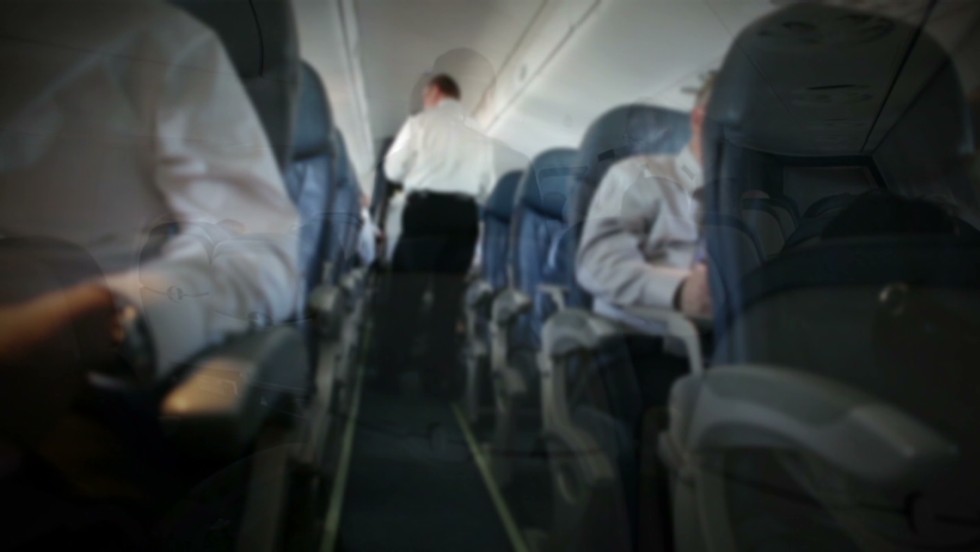Story highlights
- It takes longer to recover from jet lag when traveling eastward
- For a faster recovery, fully expose yourself to the local light-dark cycle
(CNN)Traveling to a different time zone can be very exciting. You are ready to explore and check items off your bucket list. Jet lag is probably the last thing you want to deal with.
A math model developed by a group of researchers at the University of Maryland explains why it takes you days to establish a new sleep-wake cycle when you travel east, but you may barely feel anything when going west.
Cross-time-zone travel causes disruptions in the brain's internal clock, known as the circadian rhythm. Cells in a brain region called suprachiasmatic nucleus maintain a healthy rhythm by oscillating in a synchronized manner. Known as a "pacemaker cell," these have a natural cycle slightly longer than 24 hours.
After rapid time zone shifts, these cells cannot instantly establish a rhythm appropriate to the new time zone, making it hard for people to immediately live by a new schedule.
The study, published Tuesday in the journal Chaos, uses math equations to look at how pacemaker cells in the brain resynchronize themselves to adapt to a new sleep cycle.
Michelle Girvan, co-author of the study and associate professor at the physics department of University of Maryland, said that the project is an extension of an undergraduate research program. She wanted the research to be relatable to everyday living while mathematically workable.
Modeling the brain clock with math
Think about how you set your watch forward to match the time in the destination when you head east. You would expect your brain clock to do the same for eastward trips, which basically makes you start the day earlier. But because most pacemaker cells in the internal clock have a natural cycle of 24.5 hours (longer than a day), it actually has a much easier time stretching the day than shrinking it.
The researchers worked out a math model to represent all the pacemaker cells in our brain clock and accounted for inputs such as lights and how sensitive a person is to sunlight, cloudiness, geographical latitude and seasonal factors, therefore creating new circadian rhythms over various trajectories.
The model shows that when your eastbound trip is long enough, the pacemaker cells adjust themselves to move the brain clock backward. This "wrong direction" is what makes it extra hard to recover from long-distance eastward travels. When you go east and cross nine time zones, instead of adjusting nine hours forward, the brain clock sets 15 hours backward. This is the kind of travel where jet lag is the toughest to overcome.
Even if your eastward trip is short and your internal clock manages to adjust itself forward, it still has a harder time doing so because of its 24.5-hour natural period. For instance, according to the model, it will take an average person about four days to recover from an eastward trip crossing three time zones, but only three days from a westward one.
The model also explains why different people suffer from jet lag of various severity. "Some people may have a natural circadian rhythm with a period of 24.5 hours, while others may have longer or shorter natural rhythms," said Girvan in a news release. "Our model suggests the difference between a person's natural period and 24 hours controls how they experience jet lag."
Girvan stressed that the mathematical model they used is a greatly simplified one. "We want to see people push this further in terms of the model parameters and biological data," said Girvan, "and make the model even more biologically realistic."
How to recover faster from jet lag
The dynamics among cells, the strength of external signals and a person's inherent sensitivity to natural stimuli all affect how soon the body clock readjusts itself, according to Girvan. So it is important to keep these things in mind when preparing for your next adventure.
Girvan suggested that you know your body well, and know what kind of travel is the most disruptive for you so you can start preparing beforehand.
Before your trip, try to artificially change external light sources corresponding to the ones in the new time zone.
When you arrive at your destination, resist the temptation of closing the curtains in your hotel room and diving right into bed when it is still bright outside. What you should do is to fully expose yourself to the local light-dark cycle. It might not be easy to do, but your recovery will be faster if you stay awake during daytime and sleep only when it gets dark.







